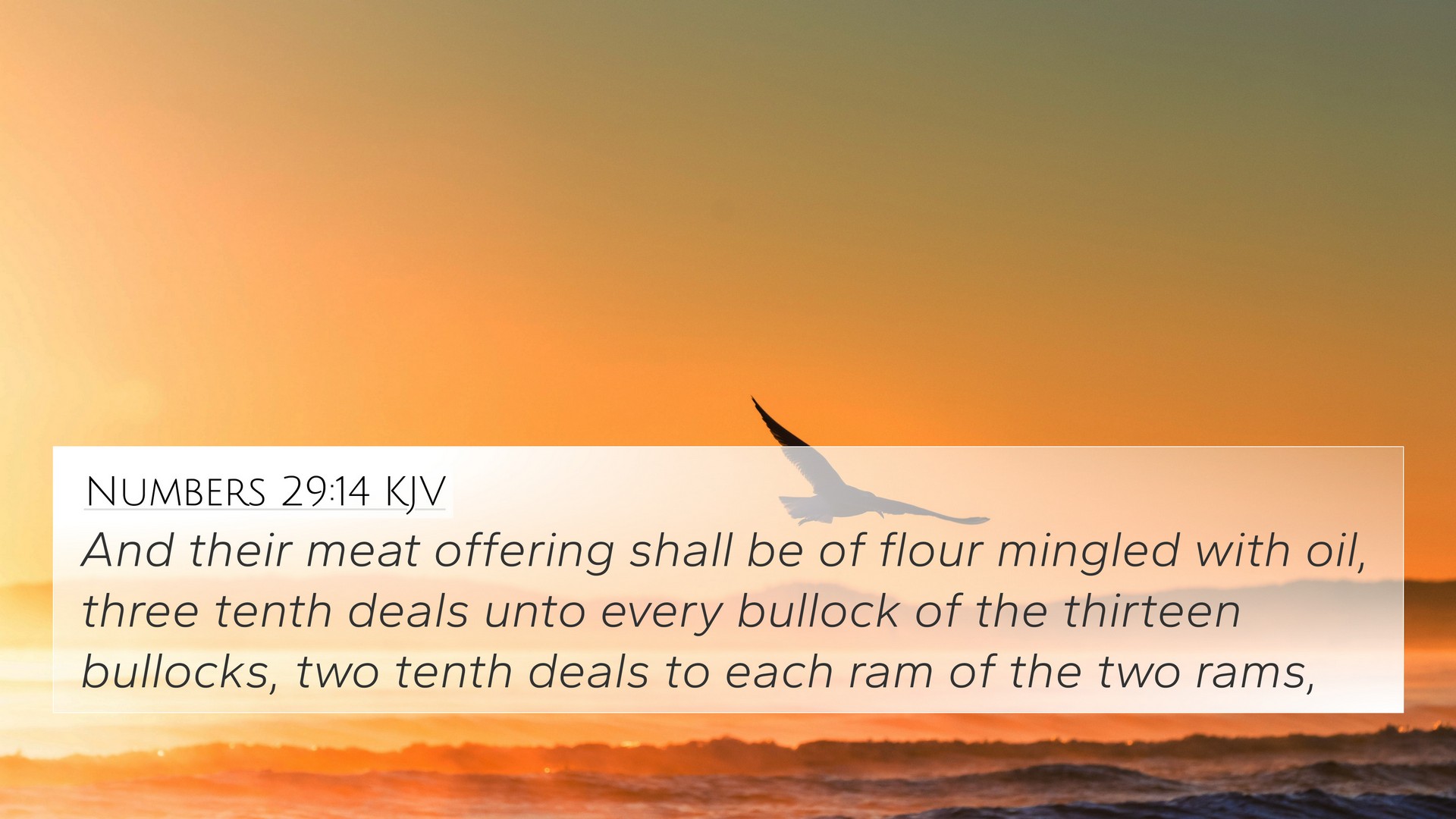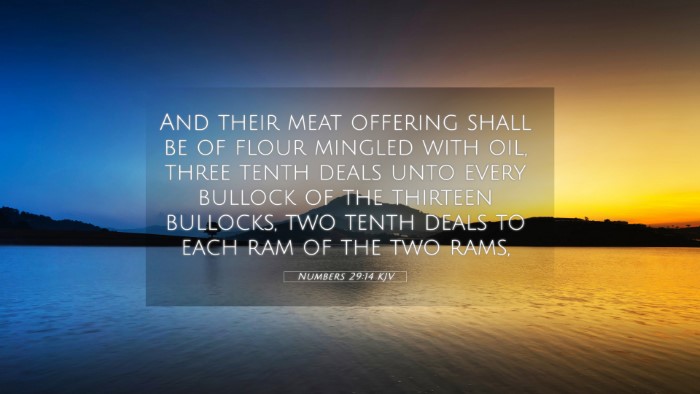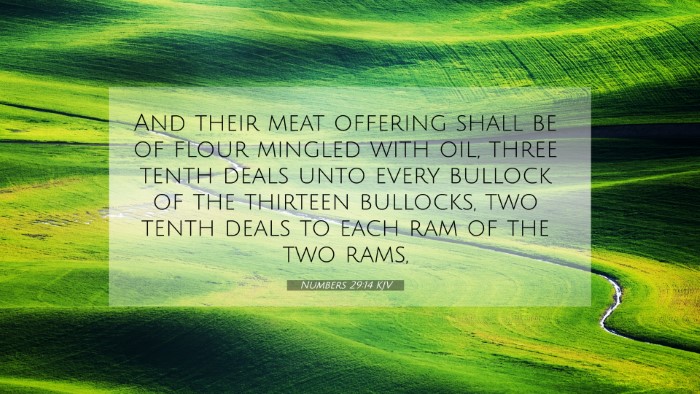Understanding Numbers 29:14
The verse Numbers 29:14 states, "And their meat offering shall be of flour mingled with oil, three tenth deals shall ye offer for a bullock, and two tenth deals for a ram." This verse is part of the Mosaic Law, outlining the offerings that were to be presented during the Feast of Tabernacles. Through the insights of various public domain commentaries, we can discern deeper meanings and thematic connections from this scripture.
Meaning and Significance
According to Matthew Henry's Commentary, the meat offering mentioned here symbolizes the dedication of the people to God. The requirement of flour mingled with oil signifies the necessity of both physical sustenance and spiritual richness in offerings to the Lord. This offers a profound insight into how God desires both the material and spiritual aspects of our lives.
Albert Barnes further elaborates that the specific measurements of the offerings are designed to ensure a standard of worship. The bullock and ram serve as symbols of strength and sacrifice, highlighting the importance of giving esteemed offerings to God. This notion resonates with the thematic connections we find across other scriptures, emphasizing God's demand for sincerity and sacrifice in worship.
Adam Clarke adds a layer by drawing attention to the symbolic meanings of the offerings during the Feast of Tabernacles. He elucidates that the offerings were part of a celebratory period, reflecting on God's provision and the joy of harvest. This intertwines with the Old Testament's call for the Israelites to remember their dependence on God, leading into various Bible verses that emphasize thankfulness and recognition of divine provisions.
Cross-Referencing Biblical Texts
Through biblical cross-referencing, we can observe various relevant verses that connect to the themes found in Numbers 29:14:
- Leviticus 23:37-38: Outlines the offerings to be brought during the feast seasons.
- Exodus 23:16: Discusses the Feast of Harvest and the offerings associated with it.
- Deuteronomy 16:10: Speaks about bringing a freewill offering during the harvest season.
- Psalm 107:22: Encourages the offering of sacrifices of thanksgiving to God.
- 1 Chronicles 16:29: Urges to bring an offering and come before God with worship.
- Romans 12:1: Calls Christians to present their bodies as living sacrifices.
- Hebrews 13:15: Illustrates the importance of offering sacrifices of praise to God.
Connections Between Bible Verses
The connections between these Bible verses highlight a comprehensive understanding of the significance of offerings in God's kingdom. They collectively suggest that offerings are not merely for ritualistic purposes but are an expression of gratitude, thankfulness, and recognition of God's sovereignty.
Thematic Bible Verse Connections
Furthermore, the themes of sacrifice, dedication, and worship echo throughout the Bible. For instance, while Numbers 29:14 focuses on physical offerings within the Mosaic Law, related verses such as Romans 12:1 remind believers of the spiritual sacrifices they are to offer in the New Testament.
Bible Cross-Reference Study Tools
For those interested in studying the connections and thematic elements of biblical texts, utilizing various tools for Bible cross-referencing can greatly enhance understanding. Resources such as Bible concordances, cross-reference guides, and comprehensive Bible study materials enable users to navigate through the scriptures effectively.
Conclusion
In summary, Numbers 29:14 serves as a vital part of the instructional texts within the Old Testament, providing insights into the nature of offerings and their significance in worship. Through careful study and cross-referencing, one can uncover a rich tapestry of connections throughout the Bible that illustrates God’s desire for relationship, gratitude, and sincere worship among His people.
Inter-Biblical Dialogue
This verse not only stands as a singular instruction but also invites readers to engage in a broader inter-Biblical dialogue. Understanding how various scripture passages relate to one another can enrich the study of biblical themes, as well as provide context for both Old and New Testament applications of worship and devotion to God.
Finding Cross-References for Further Study
As you explore scriptures, consider utilizing cross-reference Bible study methods to uncover deeper insights. Questions such as "What verses are related to Numbers 29:14?" or "How do 1 Chronicles 16:29 and Romans 12:1 connect?" can guide your study and provide clarity in understanding biblical teachings on offerings and worship.


